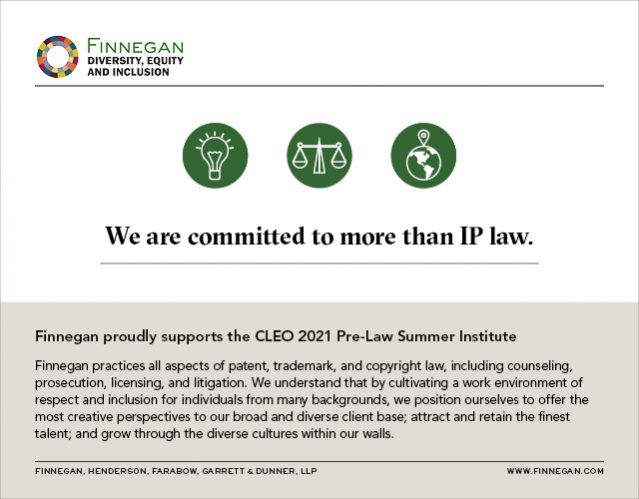
February, 2022 – Issue 4
Welcome to The Council on Legal Education Opportunity (CLEO) JD Report where we will share tips on how to prepare for and succeed in law school. Get legal profession insights from our CLEO alumni, and get to know our Partners-In-Law: law schools that are making a commitment to diversity and inclusion.
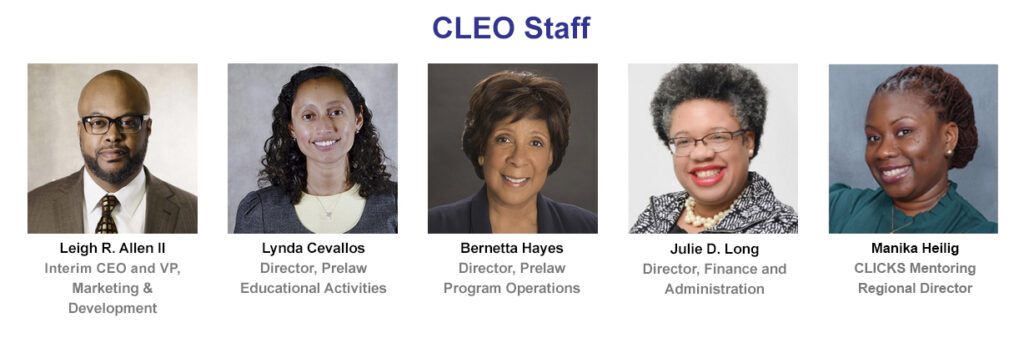
The Council on Legal Education Opportunity, Inc. (CLEO): is a 501(c)(3) national non-profit organization that was founded in 1968 to expand opportunities for minority and low-income students to attend law school. Since its inception, more than 28,000 students have participated in CLEO’s programs and joined the legal profession.

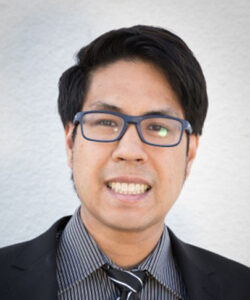
Read Secrets of a Law Student’s success & how CLEO can help YOU!
David Pham
Chapman University
Dale E. Fowler School of Law
Q1. – What was your course of study in college?
I studied Urban Studies and Planning at the University of California, San Diego.
Q2. – How did you become interested in pursuing law?
After graduation, I thought about working in law, but I did not think I could work in the legal field. To confirm my decision, I went back to school to get the ABA-approved paralegal degree and worked in many temporary legal internships.
One of the internships that left an impression on me was volunteering at Community Legal Aid SoCal. There, I got to work on the hotlines, performing client intake for various issues from family law and domestic violence to tax. I discussed the facts of the case with the attorneys, and I got to see how attorneys work and used the law to help those in need. I felt like my work with them was meaningful.
Through my discussions with attorneys, I was convinced I, too, wanted to be an attorney. Right now, I am glad to be in law school and have recently finished my summer externship with the city.
Q3. – What steps did you take to prepare for law school?
I did three things to prepare for law school:
First, I researched the law schools that I want to apply to online and then talked to their ambassadors, admission officers through law school events and the local LSAC Law School Forum. Some ambassadors give you waviers to application fees if you ask them. I like to get to know the school more in-person and, if they are admission officers, let them see your face and get to know you personally.
Second, I took a LSAT prep course to prepare for the LSAT. I needed to get a score that would give me a good shot to get accepted by law school. I studied for the LSAT like it was a marathon by putting all my energy into it.
Third, I attended programs and applied to many fellowships which helped me with the law school application process and law school preparation. In the programs, I got pointers on how to improve my application, such as feedback on my personal essay and how to approach certain issues (e.g., low grades or gap years) in the application. Then, when I was accepted into law school I applied to and attended the CLEO Pre-Law Summer Institute which [gave me the tools and honed in the skills I needed to succeed] in law school.
Q4. – How did you find out about CLEO?
I found out about CLEO at a law school conference hosted by LSAC. There, I was introduced to CLEO’s Pre-Law Summer Institute – a “boot camp” to prepare people like me, a person of color and first-generation student.
Q5. – What benefits did you receive by participating in the CLEO Pre-Law Summer Institute or 1L-Prep Attitude is Essential?
There are many benefits!
The first benefit is that you get to do a “trial run” of law school. You take notes from professors’ lectures, create your outline, take a live exam and write a legal memorandum.
You also get to experience the Socratic method from professors. At first, my mind went blank because I got nervous. However, throughout the process, you get to build more confidence with each practice. You slowly learn to become an effective speaker who can answer the professors’ questions with confidence. Although the Socratic Method was never fun when l gave the wrong answers, at least I was prepared. I learned to brush off the feeling of getting a wrong answer.
Second, you get guidance and support. Academic fellows answer questions about the course and give you tips on approaching the exam. And professors are open to helping you during office hours.
I learned from mistakes based on my experiences in the program and had a second chance to do it right at law school. Also, I took the constructive criticism and tried to improve upon it.
Finally, another benefit is that you start to develop a cohort. On the first day, I was in a class with people I had never met. Throughout the program, you get to know and bond with your classmates personally as well as professionally. During the class, we got to be more honest and have somber discussions about our experience and how the law, the good and bad, affected us. By the end of the program, we all became very close and continue to maintain contact.
It was crucial for us [to know], especially during the pandemic and the historical events that affected us, that we supported each other throughout the CLEO program and law school journey.
Q6. – What helps/ed you cope with the stress of law school?
Having a support system. Having study groups with friends I met in class and are serious about grasping the material. They helped me get through difficult material, and study group sessions were a surprisingly great bonding experience.
I also set times when I would rest from my studies to reset. During my “rest time”, I did simple activities such as walking outside, listening to music, or praying before going back to reading 20 pages or drafting a legal memorandum.
Q7. – After law school, what are your legal career plans?
So far, I plan to work in the public interest. Although it is not set, I would like to work in dependency, local government, or land use.
Q8. – Do you volunteer or intern with any legal organizations?
Before law school, I volunteered at Community Legal Aid of SoCal at a hotline. The position tended to be very stressful and high-paced. However, I enjoyed my time because I got to help members of the community who did not have the economic means to get legal representation. Also, I was exposed to various areas of law such as family law, domestic violence, landlord-tenant law, and tax.
One summer, I interned with the City of Santa Ana. It was a good experience. I performed legal research on municipal issues and drafted legal memos, a motion, and agreements to serve the city officials and departments. I learned how to advise clients in a way that aligns their interests to serve the residents of Santa Ana and avoid unnecessary legal liability.
Q9. – Do you have any advice for future law students?
Be mentally prepared to do law school. It is not like any other experience. You will experience a high amount of stress, work, and negative thoughts throughout the process. Find ways to cope with countering those negative experiences, such as having a support system to help you think through the process and encourage you to push [through the tough times]. Whenever there are resources the law school provides, use them. Any help goes a long way.
Q10. – What motivates you to be part of the legal profession?
One thing is remembering that I want to be a lawyer. I want to use the degree to help people [at the legal level] and I cannot do that without my J.D.


Five Friends – Alspeth, Bianca, Cara, Dennis, and Elora – decided to kick back over the holidays with five classic books. Each friend reads exactly two of the books, each book is read by exactly two friends, and no friend reads the same combination of books as any other friend. Given the clues below, can you determine which two books each friend reads?
- Alspeth reads Fahrenheit 451 but not To Kill a Mockingbird.
- One friend reads both Invisible Man and Slaughterhouse-Five.
- Neither Bianca nor Cara reads Slaughterhouse-Five, but exactly one of the them reads Walden.
- Elora does not read any of the books that Dennis reads, but does read one of the books that Bianca reads. Alspeth reads one of the books that Dennis reads.
- Elora does not read Walden.
Solution: Alspeth reads Fahrenheit 451 and Slaughterhouse-Five; Bianca reads Invisible Man and To Kill a Mockingbird; Cara reads To Kill a Mockingbird and Walden; Dennis reads Walden and Fahrenheit 451; Elora reads Invisible Man and Slaughterhouse-Five.

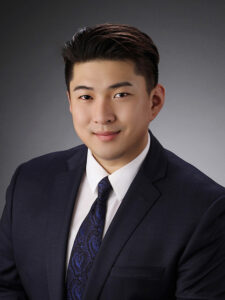
Read Secrets of a Pre-Law Student’s success & how CLEO can help YOU!
Alan Huang
Pre-Law Student
Loyola University Chicago
Q1. How did you find out about CLEO?
I first heard of CLEO from the Pre-Law Society at Loyola University Chicago.
Q2. When did you realize you wanted to attend law school?
Since middle school I have always wanted to become a lawyer. I had the chance to get to know the judicial system of the United States as a student in China. The ability to defend one’s rights as a lawyer inspired me. It wasn’t something you get to do in an authoritarian country.
Q3. What did you learn during the various CLEO programs?
CLEO’s program covers almost every stage that leads up to your application, and some even after you are accepted [into law school]. Each of these programs provides valuable information and tools for LSAT, application preparation, networking with [law school] deans, and so on. This comprehensive set of programs can help you navigate every step to becoming a lawyer.
Q4. How have the CLEO programs influenced your preparation for law school?
The wide range of programs introduced me to a lot more information that general admission info sessions couldn’t cover. It also provided more depth and insight into the admission information available. The programs also made me feel supported and empowered. That feeling was present in almost every program. The guest speakers would re-affirm their commitment to helping the disadvantaged pre-law students. There were also a lot of nuanced suggestions that impacted the applicants, such as communication skills and manners.
Q5. Select one of the CLEO programs (ASAP, JJ LSAT or CLEO Connection) you attended.
What portion of that program was most beneficial to you and why?
I find ASAP the most useful for me. The application for law school is very complicated with a variety of different requirements. Understanding the process was half of the battle. And, a lot of school admission events cannot provide you substantive suggestions that advance your application. But the deans and admission officers at ASAP were providing heartfelt advice that could actually enhance the application. For example, we have heard many admission officers use the phrase “holistic review.” But truly, we needed a better explanation on how to make the “holistic” package – what to stress or what to avoid; ASAP gave us that.
Q6. Do you plan to attend any future CLEO Pre-Law programs?
Yes, I absolutely look forward to attending many more CLEO programs. I am already in touch to inquire about the programs for admitted students. CLEO events are not only good for academic achievement but also foster one’s connection with the legal community, particularly with underrepresented ones.
Q7. Do you have any advice for other aspiring lawyers?
Looking back on my journey of applying to law school, I think one of the most important things was to aim high but always be grounded. No matter if it is your current academic career, building rapport with the community, taking a test, or writing an application, you always want to keep your dream big but keep your feet on the ground. Only taking one step at a time will lead you to your goal.

Jacobi is a Senior at Legal Prep Charter Academy
Meet a dynamic young scholar & listen to his secrets of success.
Jacobi Mallett – Mentee
Julian Williams – Mentor
Jacobi Mallett, and his mentor, Julian Williams were chosen as Outstanding Mentor/Mentee from Legal Prep Charter Academy, our IL Partner, for National Mentor Month.

Brandy Smith - CLEO 2008
The CLEO “Alumni Spotlight” showcases CLEO alumni and the experience and success they’ve had in the legal profession. It also represents a space to highlight community involvement, volunteer service, and the impact CLEO alumni are making in society. If interested in being considered for an upcoming “Alumni Spotlight,” please send an email to alumni@cleoinc.org.

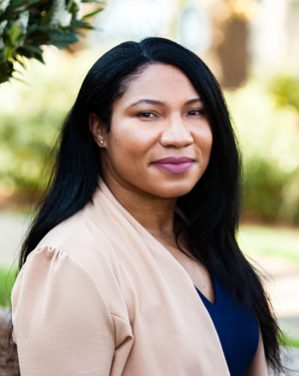
Virtual Advising in the Past, Present, & Future
Teria Thornton,
J.D., AFC®, CDP®
Manager of Education Services and Diversity Initiatives, AccessLex Institute
Even if we didn’t start off as digital natives like you may have, the pandemic has made us digital residents all the same. Social gatherings, conferences, and yes – even advising – have found their way into the virtual space. While we at nonprofit AccessLex Institute have always offered advising remotely through AccessConnex by AccessLexSM, there are lessons we’ve learned from the past and present that we want to share with you as you prepare for your law school journey in an ever more virtual world.
The Past: Prior to the pandemic, we interacted with students, applicants, and graduates based on their personal preference. The demands of school, work, family – life, in general – made a phone call, WebEx meeting, or Zoom simply more doable for some. However, in our line of work we know that personal finance is often more personal than it is financial. Therefore, a reassuring face sitting across the table could be what was needed most to calm a student’s cost of attendance worries!
The Present: After nearly two years of navigating this pandemic, our preparation for everyday events, such as going to the grocery store or attending classes, has changed. And your preparation for advising appointments may have changed, too. Now, you need to think about what is needed prior to meeting with your advisor virtually so that you can make your time together more productive. Make sure you’re asking yourself the following questions to ensure you get the most out of your time with your advisor:
- Does your advisor have enough background information about you and your circumstances before you meet?
- Are there any documents you would like for the advisor to review prior to your meeting? (We have some great worksheets and checklists in Ask EDNA!SM – the new Education Network at AccessLex, that you can use during your advising appointments!)
- Have you completed any requested or required tasks prior to your meeting?
The Future: While none of us knows exactly what the future holds, we should be excited about the possibilities. We think virtual advising is here to stay – and that’s a good thing! However, instead of being so focused on the transition to advising in a virtual environment, we can now focus on the opportunities. At AccessLex, Accredited Financial Counselors can share websites, view spreadsheets, and meet with individuals from across the world through AccessConnex. And while there are positive aspects of in-person advising, virtual advising provides many of those benefits without the limitations of location and time. As you explore the possibilities, ask yourself these two questions:
- What resources are accessible to you virtually that are not available in your area, school, or network?
- What platform, apps or websites could be used for or during virtual advising to enhance your meeting?
No matter your preference, we encourage you to be open to the possibilities and potential of virtual advising!

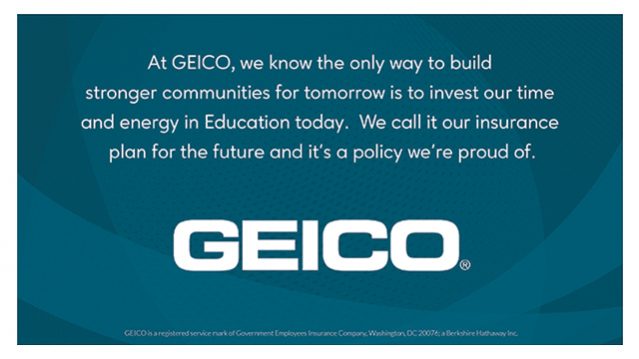
MORE THAN INSURANCE COMPANY FOR CARS
GEICO
Have you seen the hilarious television ads about the gecko that is the brand for GEICO? Well, the second largest car insurance company in the United States takes its relationships seriously. When asked if it would support the CLEO EDGE Scholarships to help aspiring law students, GEICO didn’t slither away. It stepped up to the plate and supported the CLEO EDGE Scholarship Fund. CLEO thanks this Fortune 500 company, which, along with other generous partners, helped students attend the 2021 Pre-Law Summer Institute.
Visit GEICO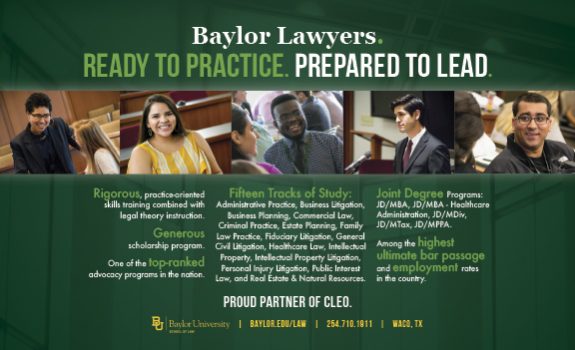
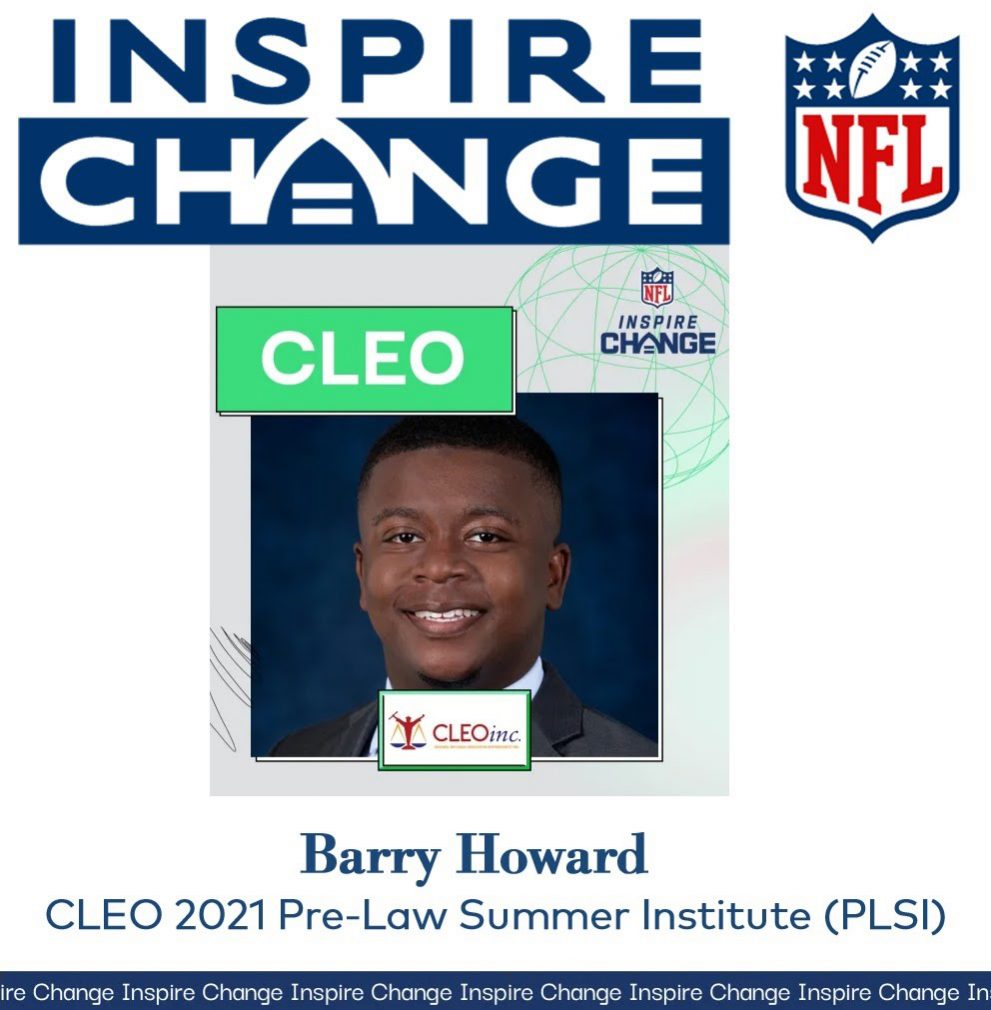
Barry Howard attended the 2021 CLEO Pre-Law Summer Institute. The knowledge and skills he gained helped propel him to attending Penn State Dickinson Law as a first-year student.
For more than 50 years, CLEO has helped future leaders like Barry pursue their dreams of becoming an attorney.
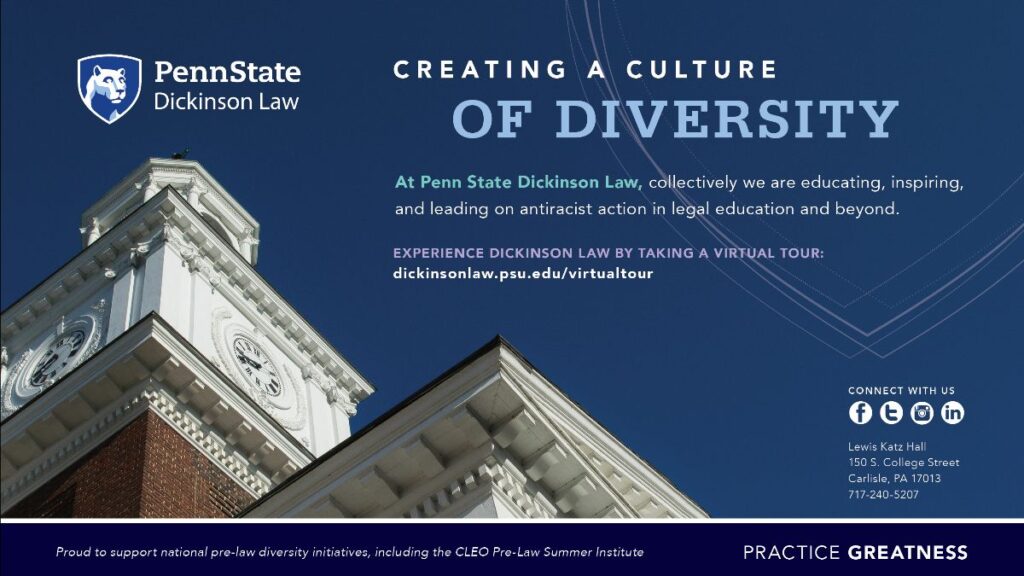
Penn State Dickinson Law is a leader in antiracist legal education
PENN STATE DICKINSON LAW VS RACISM
Dean and Donald J. Farage Professor of Law Danielle M. Conway, along with her colleagues, spearheaded the Law Deans Antiracist Clearinghouse Project and the book series “Building an Antiracist Law School, Legal Academy, and Legal Profession,” edited by Dean Conway, which will launch in tandem with Penn State Dickinson Law’s new Antiracist Development Institute (ADI). The ADI will offer organizations systems design-based approaches to implementing antiracist practices.
The legal academy, LSAC, AccessLex, and others have lent their support to ensure the active engagement of the legal community. CLEO stands with our law school partner PENN STATE DICKINSON LAW to denounce racism and to encourage avenues to erase systemic racism throughout all our institutions.
PARTNER SCHOOLS
Florida A&M University College of Law
University of Idaho College of Law
Marquette University Law School
The University of Mississippi School of Law
North Carolina Central University School of Law
Penn State Dickinson Law
Quinnipiac University School of Law
Vermont Law School
Washburn University School of Law
SUPPORTING INSTITUTIONS
Baylor University School of Law
Boston College Law School
Brooklyn Law School
Case Western Reserve University School of Law
Cornell Law School
Golden Gate University School of Law
New York Law School
University of North Carolina School of Law
University of Pittsburgh School of Law
South Texas College of Law Houston
UNT Dallas College of Law
University of Utah S.J. Quinney College of Law
Western State College of Law at Argosy University
SUSTAINING INSTITUTIONS
The University of Alabama School of Law
University of California at LA School of Law
The University of Chicago Law School
University of Cincinnati College of Law
Drake University Law School
Southern Illinois University School of Law
The University of Iowa College of Law
The University of Kansas School of Law
Louisiana State University Paul M. Hebert Law Center
The University of Michigan Law School
Michigan State University College of Law

